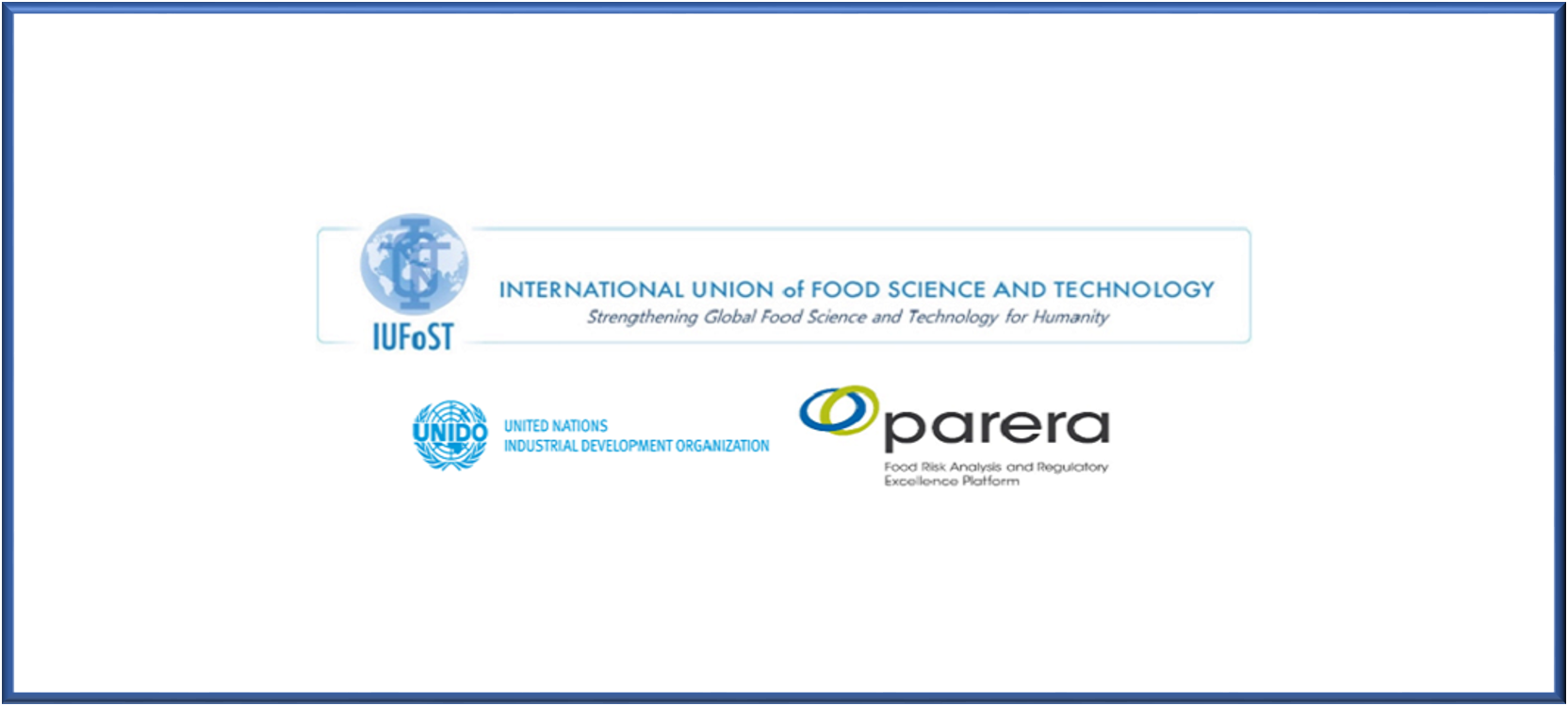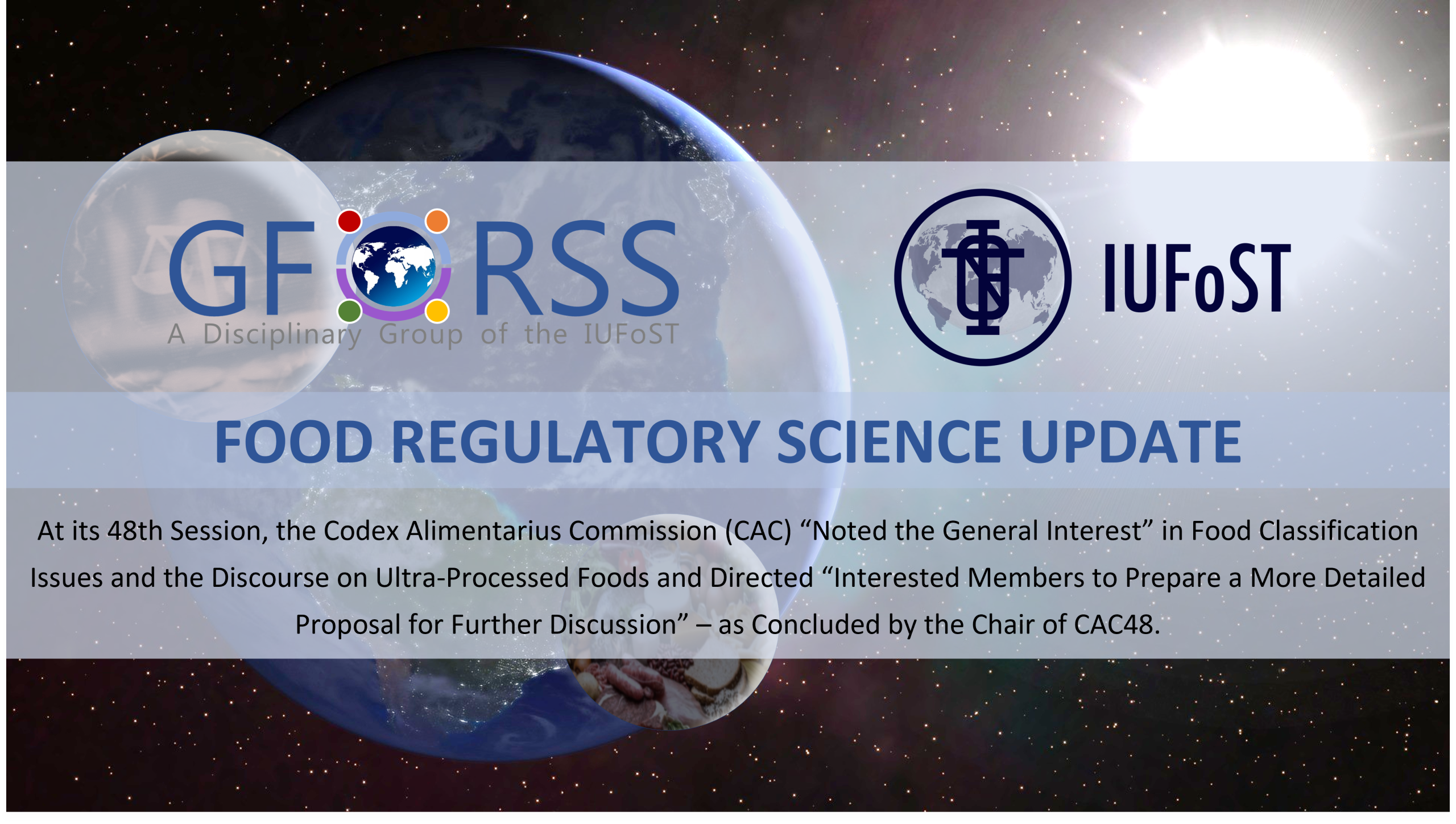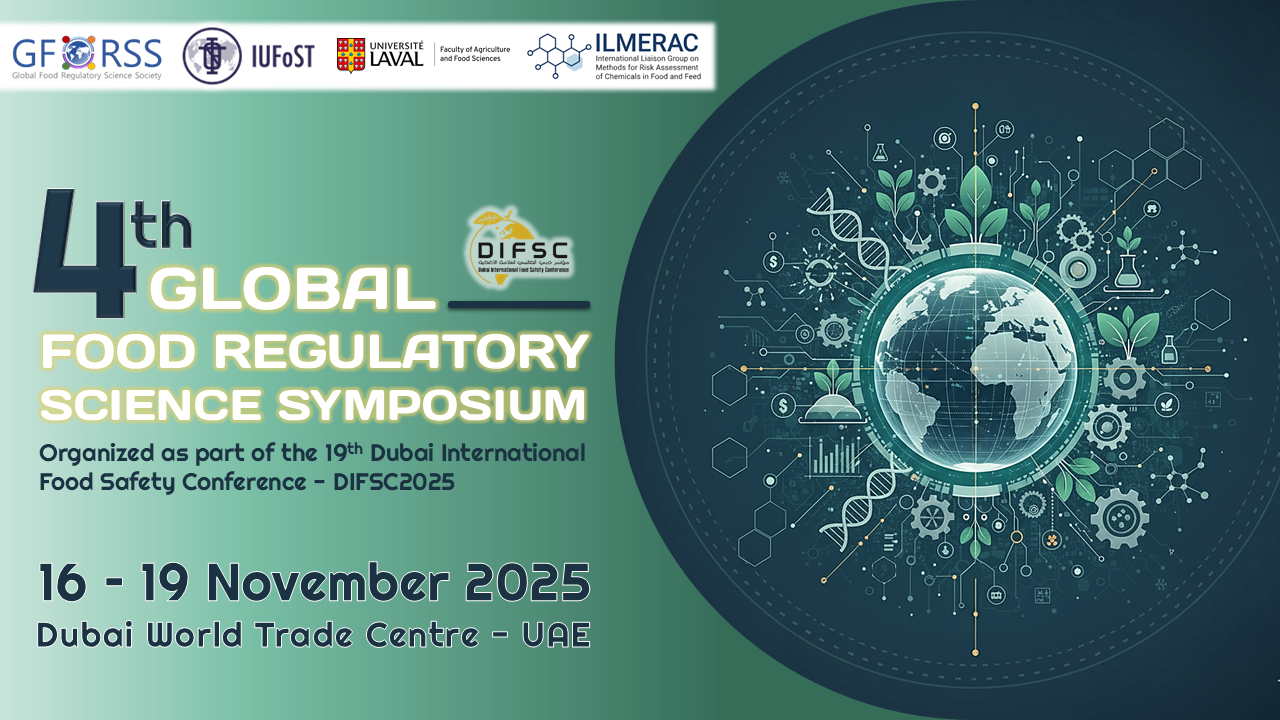The current COVID-19 Pandemic has uncovered vulnerabilities in the food / agrifood supply chains, which, if not addressed, may contribute to the global degradation of health and the economy. All partners and stakeholders involved in the food production sector – producers at every supply chain level, food regulators, retailers and consumers – have taken measures to overcome these vulnerabilities, to develop and to apply preventive and mitigation measures to help ensure sufficient food production and supply chains are kept intact.
The International Union of Food Science and Technology (IUFoST) partnered with the Food Systems and Nutrition Division, Agri-Business Development Department of the United Nations Industrial Development Organization (UNIDO) and the Food Risk Analysis and Regulatory Excellence Platform (PARERA) of Université Laval, Québec, Canada, to organize a round table discussion with the objective to share perspectives of the food production sector and food regulators on the challenges faced, solutions developed and lessons learnt, in various parts of the world, in an effort to prevent the disruption of food production and to contribute in maintaining the safety of products and consumer confidence.
The roundtable gathered food regulators and representatives of the food production sector from Asia, Europe, South America and the Middle East.
The Roundtable was co-chaired by:
Mr. Ali Badarneh, Chief Food Systems and Nutrition Division, Agri-Business Development Department, United Nations Industrial Organization (UNIDO), and Prof. Samuel Godefroy, Professor Food Risk Analysis and Regulatory Policies, Food Risk Analysis and Regulatory Excellence Platform (PARERA), Department of Food Sciences, Institute of Nutrition and Functional Food (INAF), Université Laval, Quebec City, QC, Canada.
Panelists included:
- Ms. Jiang YiFan, Head, Science & Regulatory Affairs, Food Industry Asia, Singapore
- Dr. Pamela Byrne, Chief Executive officer, Food Safety Authority of Ireland, Republic of Ireland
- Mr. Sébastien Beaulieu, Vice-President Quality, Leclerc Foods, Québec, Canada
- Mrs. Joyce Haddad, Director of Preventive Healthcare, Ministry of Public Health, Lebanon
- Dr. Nuri Gras, CEO, Agencia Chilena para la Inocuidad y Calidad Alimentaria, Chile
- Ms. Jenna Wijngaarde, Food Safety Advisor, Primary Production Sector, Suriname
Key Highlights of the Roundtable
A number of factors contributed to the ability of the food production sector to cope with the current pandemic:
- A commitment from partners to address the challenges on their operations and on the overall supply chain in order to maintain the safety and availability of food products.
- A commitment not to succumb to protectionist instincts but instead to keep the flow of trade in food and agrifood products open and fluid with the conscious intent to maintain affordability of food ingredients across the supply chain.
- The ability to adapt to constraints of limited transportation and the need to diversify suppliers with the introduction of more local and/or regional providers to prevent and mitigate food shortages while encouraging and supporting the local production sectors minimally affected by the consequences of the pandemic.
- The prioritization of food regulatory functions based on risk through the deployment of innovative solutions – such as automatic renewal of regulatory licenses, a stronger reliance on self-audits and assessments – capable of collecting data to substantiate results.
- Efforts to promote collaboration among partners and between stakeholders with the intention to share and disseminate experiences related to how COVID-19 mitigation measures can be applied and adapted in the context of food production.
- The importance of communication at every level within a food production operation – from the most senior leadership and beyond – to support coping efforts and the uptake of mitigation measures.
- Communication was also instrumental between regulators – through existing networks regionally and internationally that were mobilized for this purpose – to coordinate action in risk assessment and to provide concerted guidance to the food production sector, as well as adapt their own food regulatory operations, to the realities of COVID-19.
The pandemic has also highlighted some structural limitations that must be addressed with some level of priority:
- The limited transportation networks at the local or regional level (for example: intra-Caribbean region) and restricted processing capacity has impeded the ability of agricultural production sectors in countries that were less impacted by the pandemic – such as Suriname – to reach other markets or to extend the shelf life of perishable goods.
- The inadequate preparedness of some sectors and actors – due to the lack of procedures, protocols or guidance – contributed to their inability to react and adapt swiftly resulting in a detrimental climate of uncertainty for food and agrifood business operations.
While this pandemic is still with us for an unforeseen period, it is important to look beyond and prepare for the period after, by:
- Undertaking the possible review of food supply chains towards a better redistribution between global and local / regional supply, including all necessary investments to enable adaptation.
- Investing to address food production sector deficiencies, such as more localized processing operations in order to create better / more opportunities for the primary production sector and to contribute to its resilience.
- Relying to a greater extent on digitalization and innovative operationalization of functions – such as inspection, audits and assessments – using affordable and accessible remote tools and data-driven-approaches which can be adapted to the needs of smaller operations, including small hold farmers.



